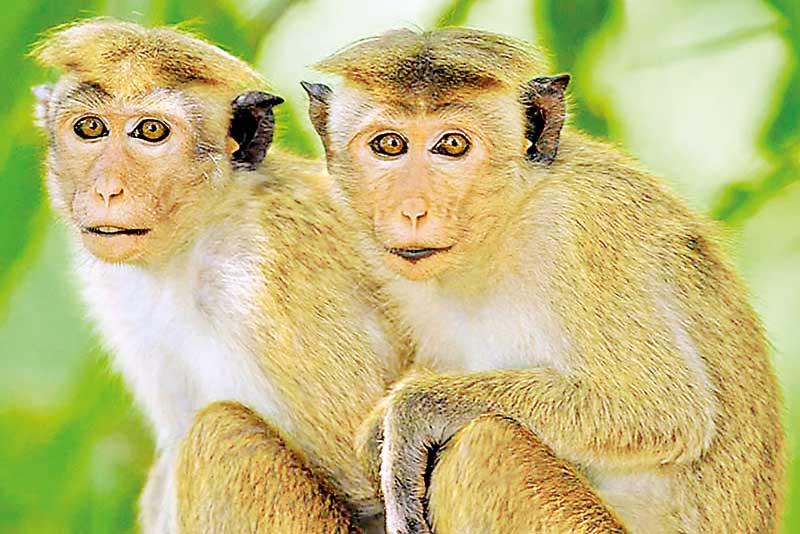16 May 2023 - {{hitsCtrl.values.hits}}

| Throughout the globe, even when they agree that the surplus of a species carries a major problem for humans and the environment, culling a herd by shooting is happening, increasingly unpopular though |
 Criminal and Flora/Fauna enactments badly need revision.
Criminal and Flora/Fauna enactments badly need revision.
A 46-year-old female arrestee taken into custody on suspicion of swindling Rs. 60 million had “committed suicide” by jumping out the 5th floor of the CID. In 1966, two “Coup suspects” took the leap out of the infamous 4th floor of the CID, while being under cruel grilling. Police said the suspects had jumped out of the window.
An Army Sergeant, another suspect named Hondamuni in his evidence, stated, when one of them, Dodampe was being interrogated, sounds of physical beating and screams of murder were overheard and when he peeped through the door, saw Dodampe lying naked on the floor. He also had heard Seneviratne SP saying ‘throw him out’. However, the lack of evidence to prove mischief on the part of CID sleuths left the crime unresolved.
Will the Kalutara 16-year-old school girl’s ‘fall’ from the third floor end up in another faux pas?
The suspects in murder cases [suicides] walk out of criminal courts as innocent men while unresolved mysteries remain for the shocked loved ones of the victims in desperation and curse the administration of justice. There are no legal provisions for the aggrieved parties to seek redress or to challenge an acquittal on the grounds of inadequate/lack of evidence or deliberate clipping of valuable evidence at the filing stage.
Isn’t it viable to launch something like a ‘distinctive post-conviction law,’ where the lawful privilege of an individual had been denied, could demand for redress or permit authorities to instruct the law enforcement officers to initiate a new investigation? Consideration of a victim’s or the family of the victim’s option to appeal would strengthen the pillars of democracy and judiciary. Legislators should think of introducing amendments to Criminal and Fauna & Flora statutes on priority.
Artigalla murder case, 117 years ago aroused much public interest. An exceptional situation occurred where one of the three accused “committed suicide” inside the prison cell by consuming a lethal dose of arson. He took his life to evade the “shame and embarrassment of ending up on the gallows”. This accused John Kotalawala was no less a person than the father of former Prime Minister, Sir John Kotalawala. The defence position was that John K [Snr] had sailed to Japan on a business engagement and was in Tokyo at the time of the killing of his brother-in-law, young Francis Artigala.
Col. T. G. Jayewardene, an uncle of JR, and also a brother-in-law of both the victim Francis and suspect Kotalawala, had an old score to settle. He used his family’s influence to put pressure on authorities. The Law enforcement authorities were revengeful too. They were all out to ensure the execution of the ex-policemen, their former colleague. During the trial, John committed suicide; [or was he poisoned?] whatever the case may be, the unfortunate death was caused as a result of a series of actions committed by the law enforcement authorities aided and abetted by interested parties. Forensics, the investigators, and the prosecutors all behaved in an uncanny manner. Anybody who followed the case certainly would agree that there was hardly any trustworthy evidence to conclude Kotalawala’s involvement in the crime. All joined hands with a common objective to see that John Kotalawala is hanged.
Isn’t this ‘culpable homicide not amounting to murder’ where the real culprits got away with impunity? It is a fact, that ‘Crimes without criminals’ is not something that would surprise anybody; countless numbers of ‘such crimes’ have happened in this thrice blessed island.
A person can be executed for possessing two grams of heroin under the Poisons, Opium, and Dangerous Drugs (Amendment) Act, No. 13 of 1984—while five narcotic traffics who had been caught red-handed a couple of years ago carrying a massive stock of heroin [some 270 kg] on a fishing trawler, which had a street value of Rs. 3 billion had to be freed due to lack of adequate evidence. The judge acquitting the accused criticized the police for dereliction of duty.
Abetment Laws in India
In India, abetment of suicide is an offense under Penal Code Section 306. A husband and wife were arrested and prosecuted for harassing Vaishali Takkar, a 29-year-old TV serial actress who was found hanging from a ceiling fan in her house in Madhya Pradesh. A suicide note left behind claimed that Navlani was harassing her. Vishali’s family members alleged that he was troubling her since she planned to get married.
Abetment of suicide is a non-bailable charge; instigating a crime; an abettor is described in Section 108 of the IPC as “a person who instigates somebody to commit suicide (or), part of a conspiracy (or) intentionally helps the victim to commit suicide by doing an act or by not doing something that he was bound to do. Whoever abets the commission of such suicide shall be punished with imprisonment for ten years, and a fine or both.”
Monkey Exports: Rights—Animal Vs Human
The toque macaque is a reddish-brown-coloured old world monkey endemic to Sri Lanka, where it is known as the rilewa. Monkeys are usually found in the ‘Cultural Triangle’ of Sri Lanka. They are so cute, crafty, and funny. Today, their growing population is causing an immense problem for the poor farming community, especially in the north-central. They have become a menace to humans. Invading tribes of monkeys destroy farms, feeding on valuable crops. Monkeys consume agricultural crops, landscape plants, and valuable wild plant species. They barge into a kitchen and open the rice pot for a free meal; destroy coconut plantations, banana groves, and most of the edible items grown by the farmers in many parts of the island albeit the urban areas where our ‘compassionate monkey lovers’ live.
As shooting them is prohibited by outdated laws, destruction remains a problem with no solution in sight. Any attempt at getting rid of the hazard is viewed with revulsion by [meat-eating] ‘Buddhists’, and the so-called animal lovers affiliated with NGOs who don’t “Give a Monkey’s” about humans. A few of them meet after a sumptuous meal of roasted turkey to decide on legal remedies using dollars to create enormous hardships for the suffering masses living in Monkey infested regions. Such outdated enactments need urgent revision.
In New York, free hunting and the clearing of preferred deer territories for farming eliminated the deer population. In Australia, grazing by the excessive kangaroo population eliminates many of the plants required by other herbivores. In 2009, the Australian government ordered the army to shoot some 6,000 kangaroos as a way to control the growing population. Throughout the globe, even when they agree that the surplus of a species carries a major problem for humans and the environment, culling a herd by shooting is happening, increasingly unpopular though.
Instead of spending on non-tax-paying lawyers, and pursuing legal redress; the money earned by fauna/flora groups in this dollar-strapped economy could be used on a coordinated project controlling toque monkey population through a sterilization/neutering programme.
01 Jan 2025 2 hours ago
01 Jan 2025 3 hours ago
01 Jan 2025 3 hours ago
01 Jan 2025 4 hours ago
01 Jan 2025 5 hours ago